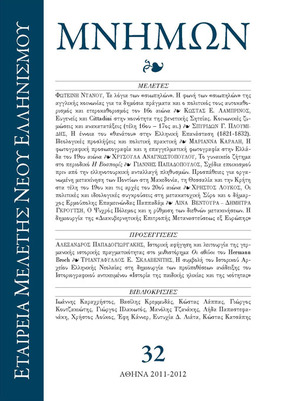Πολιτιστικές και πολιτικές πρακτικές του αργεντινού αναρχισμού
Part of : Μνήμων ; Vol.24, 2002, pages 11-28
Issue:
Pages:
11-28
Parallel Title:
Cultural practices and politics of the argentine anarchism
Section Title:
Articles
Abstract:
The writer attempts to establish the basic characteristics of the argentine anarchism, analyze its cultural dimensions and show the limits of its strategies. The basic concepts of the anarchism in Argentina were developed during the years 1870-1920, within a constantly changing and cosmopolitan social environment, since it was in that period that the country became part of the international market place. The anarchists' discourse, being flexible and out of rigid structures, based on the principles of class heterodoxy, individualism and universality, as well as on the spontaneous action, achieved to interpret, during the years 1890-1910, not only the demands of the working class, but also the discontent and frustration of the lower classes and oppressed social groups, in general. The anarchists undertook the mission to «illuminate» and educate morally the working class, through the doctrinaire press and a network of a considerable number of circles, clubs and alternative schools, which offered not only economic help but also education and entertainment to the workers and their families. On the other hand, the constant rejection, by the anarchists, of the concepts of citizenship, representation and political participation had a negative effect on the popularity of the movement: because of the new political situation during the 1910s —in 1912 all men obtained the right to vote—, the working class changed its attitude towards the electoral process and got interested in the social measures taken by the radical governments of the period; as a result, the anarchism faced serious difficulties to attract the interest of the lower classes.
Subject:
Subject (LC):




